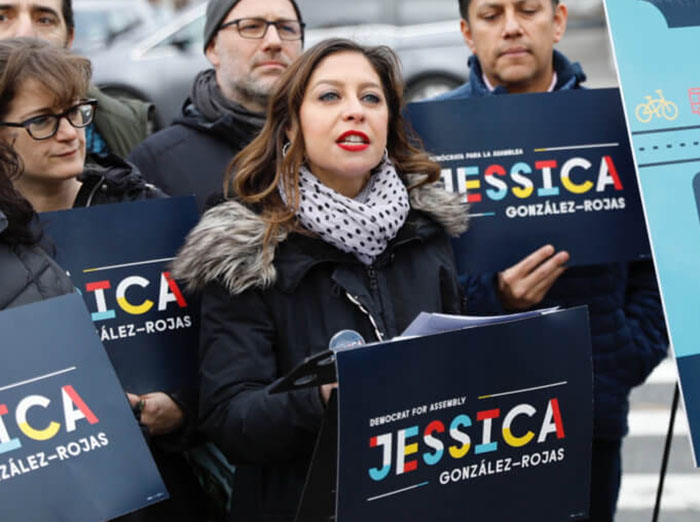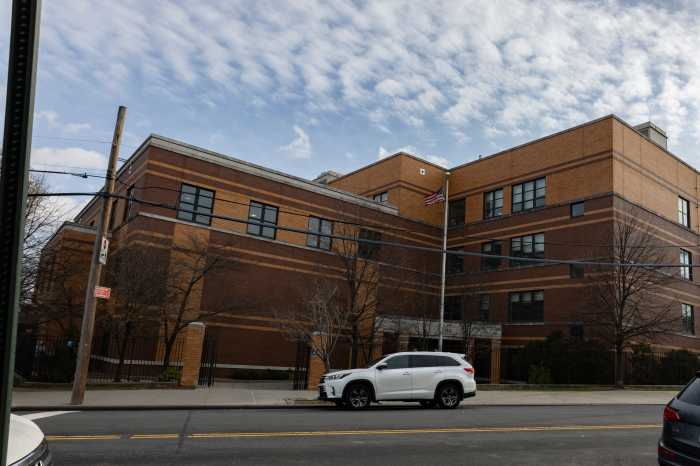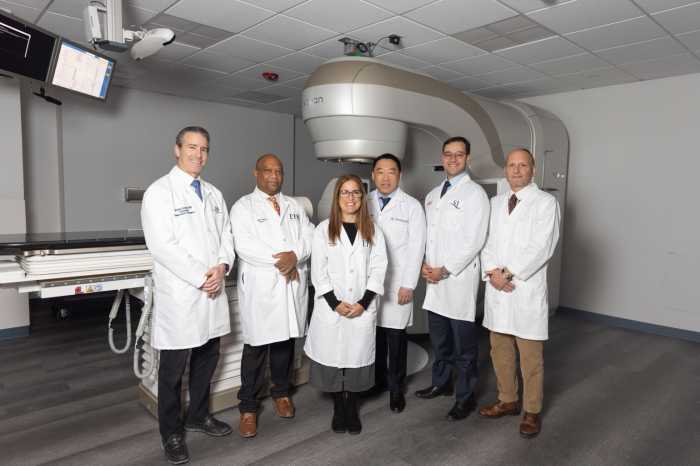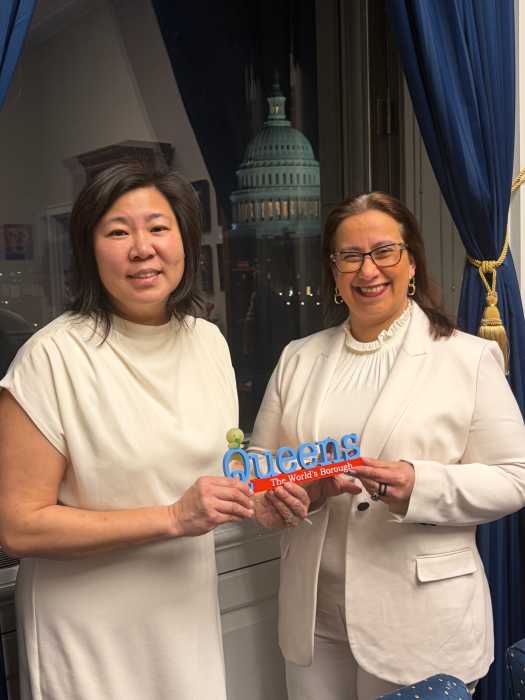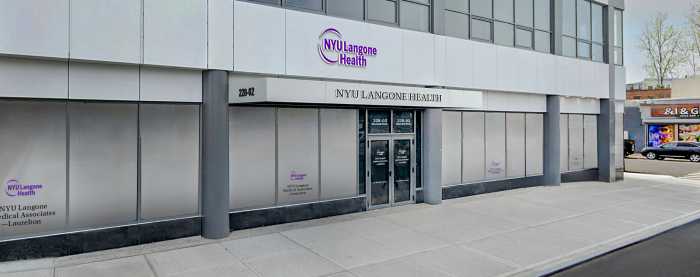Jessica González-Rojas’ days now consist of mutual aid calls, delivering groceries and basic needs to neighbors, and hosting informative webinars for the Jackson Heights community, one of the Queens neighborhoods hardest hit by the COVID-19 pandemic.
You may know her as a prominent candidate for New York State Assembly District 34, a seat held by six-term incumbent Michael DenDekker, but she’s shifted her campaign efforts to focus on the current health crisis.
And it’s clear why — the coronavirus is disproportionately affecting District 34 (which encompasses Jackson Heights, parts of Corona, East Elmhurst and Woodside), much like it is other neighborhoods in New York City that are mostly made up of low-income and people of color communities.
District 34’s population is 88 percent people of color, 60 percent of whom are Latin or Hispanic, and 62 percent foreign born.
“While the virus doesn’t discriminate, its impact does,” González-Rojas said. “Queens is the epicenter, but you’re also hearing about the incidents and high death rates in places like the Bronx. You look at who’s in the Bronx, and what’s the income disparities, the race, ethnicity and immigration status of those communities? We know what those answers are, and we see it clearly, and yet we don’t have solutions that address them.”
González-Rojas, former executive director of the National Latina Institute for Reproductive Health, believes that while the federal government has carved out undocumented, immigrant and mixed-status families from receiving benefits of recently passed COVID-19 relief packages — New York State and NYC should fill in those gaps.
“These communities put themselves on the line to keep our city running and yet they’re excluded from the majority of benefits that are coming from the federal government and even the city,” González-Rojas said. “There’s so many benefits that require a social security number that we know our communities don’t have.”
NYC is home to 3.1 million immigrants, comprising about 37 percent of the city’s population and 44 percent of its workforce, which includes approximately 360,000 undocumented workers and 48,000 undocumented business owners.
According to the city, foreign-born New Yorkers, including the undocumented population, contributed about $232 billion to NYC’s GDP in 2019.
Half of the one million essential workers who are on the frontlines of the COVID-19 pandemic — delivery workers, EMS staff, drivers, health care personnel, and more — are immigrants.
There are approximately 738,000 undocumented workers and 218,000 children in NYC. Over a third of NYC’s undocumented workforce are low income and are ineligible for most safety net assistance, according to the city.
Directly helping undocumented and immigrant communities
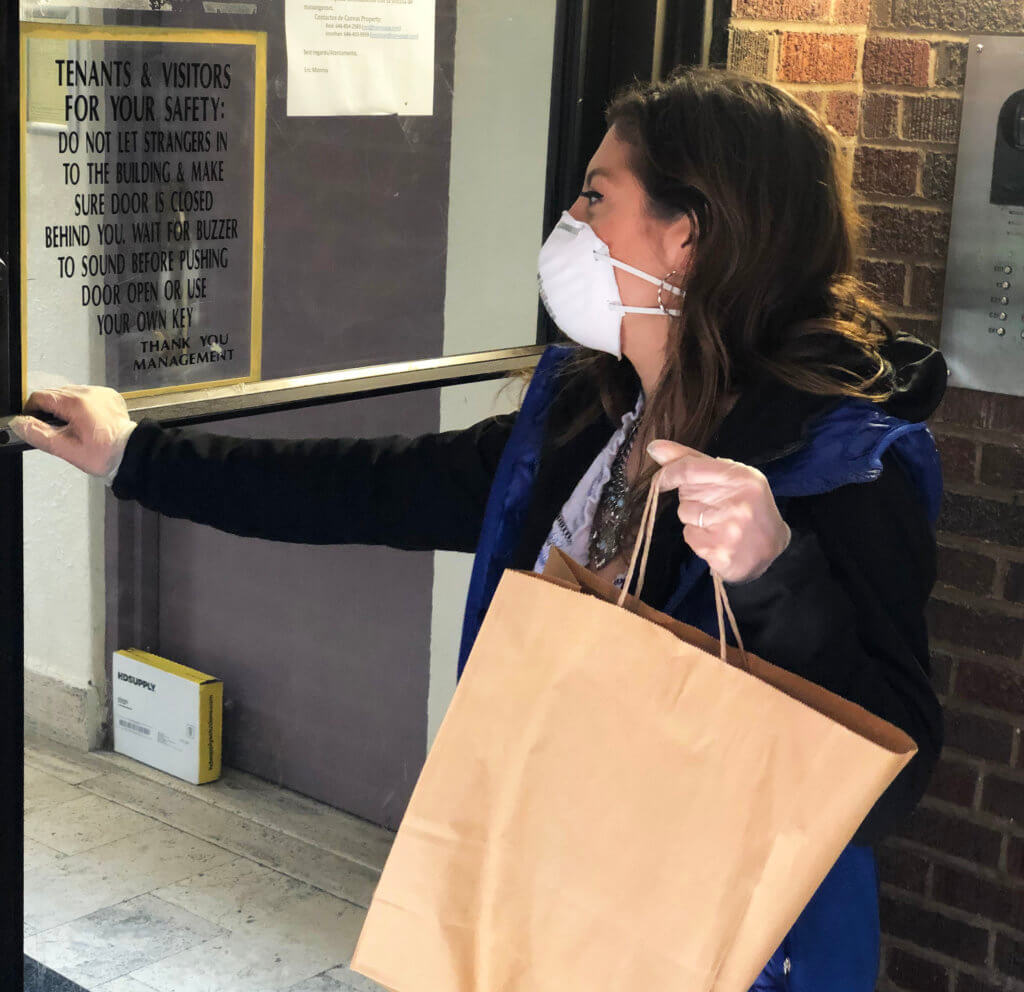
González-Rojas, the daughter of a Paraguayan father and Puerto Rican mother, believes lawmakers should be passing universal laws that will serve everyone, such as freezing rent.
And for the immigrant and the undocumented communities, the city should do a better job of providing translated information and create a fund to give them direct monetary resources.
Last week, Mayor Bill de Blasio announced a partnership with Open Society Foundations to create the New York City COVID-19 Immigrant Emergency Relief program, a $20 million initial fund that will reach 20,000 immigrant workers and their families with direct, one-time emergency relief checks.
The citywide network of community-based organizations and worker centers will distribute the one-time emergency relief payments to undocumented workers and their families who are affected by COVID-19-related job loss and facing financial distress, in the amount of $400 for an individual, $800 for couple or single parent with children, and $1,000 for family with multiple adults and children.
While González-Rojas is thrilled to see the Mayor’s office is investing in New York City’s undocumented families, she believes the amount offered is sorely lacking.
“The thresholds are so low, and barely covers a family’s basic needs,” she said. “I imagine they’re just trying to get money to people as fast as possible, but they should be getting what the rest of us are — not that I think we’re getting enough. But they deserve equitable investment.”
González-Rojas notes there are a number of nonprofits doing exemplary work in her district, such as New Immigrant Community Empowerment (NICE), which she was on the founding board of, and Adhikaar, as well as food pantries like La Jornada, where she sometimes volunteers. Even GoFundMe campaigns by individuals for individuals have become more common.
But, ultimately, the the Boston University alumna believes basic rights like food and medicine, should be ingrained in our society’s foundation.
“A woman passed away in my community whose husband had to use GoFundMe to get funding for funeral services and cremation services,” she said. “It’s just heartbreaking that you have to rely on the kindness of neighbors, although it is beautiful that people are stepping up, that shouldn’t be the responsibility of individuals.”
Re-imagining health care
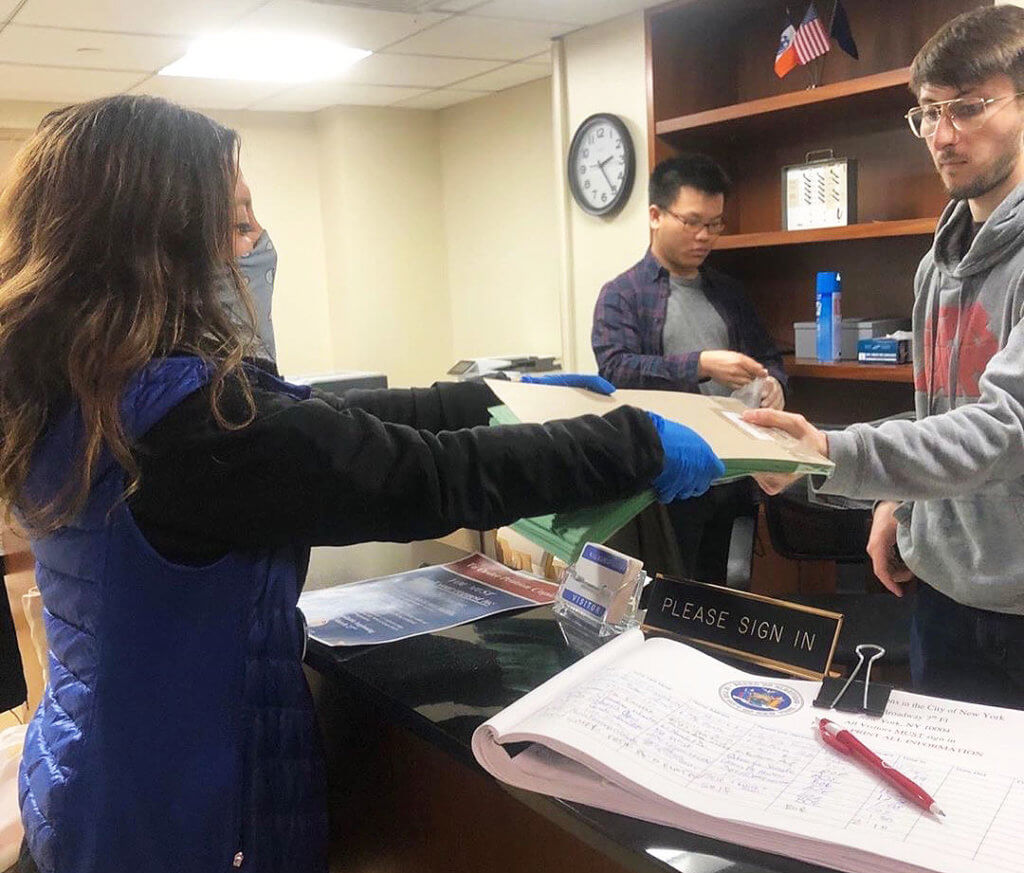
González-Rojas is nationally recognized for her influential work in health care reform.
If elected to state Assembly, she’s committed to passing the New York Health Act, which she believes will address many of the timely and long-term issues in the healthcare system by providing healthcare to all New Yorkers — regardless of work or immigration status.
“I’ve been working on envisioning universal health care since 2007,” González-Rojas said. “When Obama was running for presidency and he was talking about what became the Affordable Care Act — the vision, the early vision, was much more holistic. It then became health insurance reform. Initially, it was very universal, and looking at public health care.”
The former adjunct professor for CUNY City College and NYU Wagner School of Public Service believes the narrative surrounding healthcare for all has effectively shifted and can become a reality, thanks to the high-level advocacy of Senator Bernie Sanders and Congresswoman Alexandria Ocasio-Cortez.
“This is where it’s exciting to be a state legislator,” she said. “While we’re waiting for the federal government to pass medicare for all, New York can do it and we can be a leader in this area.”
But González-Rojas sees the state budget, which made significant cuts to Medicaid, as just another failure.
“It’s awful … it’s an austerity budget. Elmhurst Hospital is going to bare $10 million in cuts in the middle of a pandemic, in which they are the epicenter of the epicenter of this public health crisis,” González-Rojas said. “And the Governor decides to slash Medicaid at this moment. This is a moment where we should be investing more in our health system and in Medicaid.”
González-Rojas — an honoree of the Ms. Foundation for Women’s 2020 Women of Vision, which recognizes feminist leaders who have made an indelible impact on the gender justice movement at the local, state, and national level — emphasized how Jackson Heights reps Senator Jessica Ramos and Assemblymember Catalina Cruz voted against the budget, unlike DenDekker.
“It really matters who’s in the room and who’s at the decision making tables,” she said. “It’s the leaders of color, those who come from immigrant families, that voted no against this budget — not your Michael DenDekkers of the world. When you change who’s in the room, the conversation is different.”
For González-Rojas, running for state Assembly means creating lasting change.
“This moment calls us to look at dismantling the system and really building something that works for everybody. We need a healthier population so that we all can thrive, so that our economy can thrive, our communities can thrive,” González-Rojas said. “I believe in systemic change. It’s not about putting band-aids on problems, it’s about addressing the problem to begin with. Looking at the root cause, and creating a society that addresses those problems before they become problems.”

